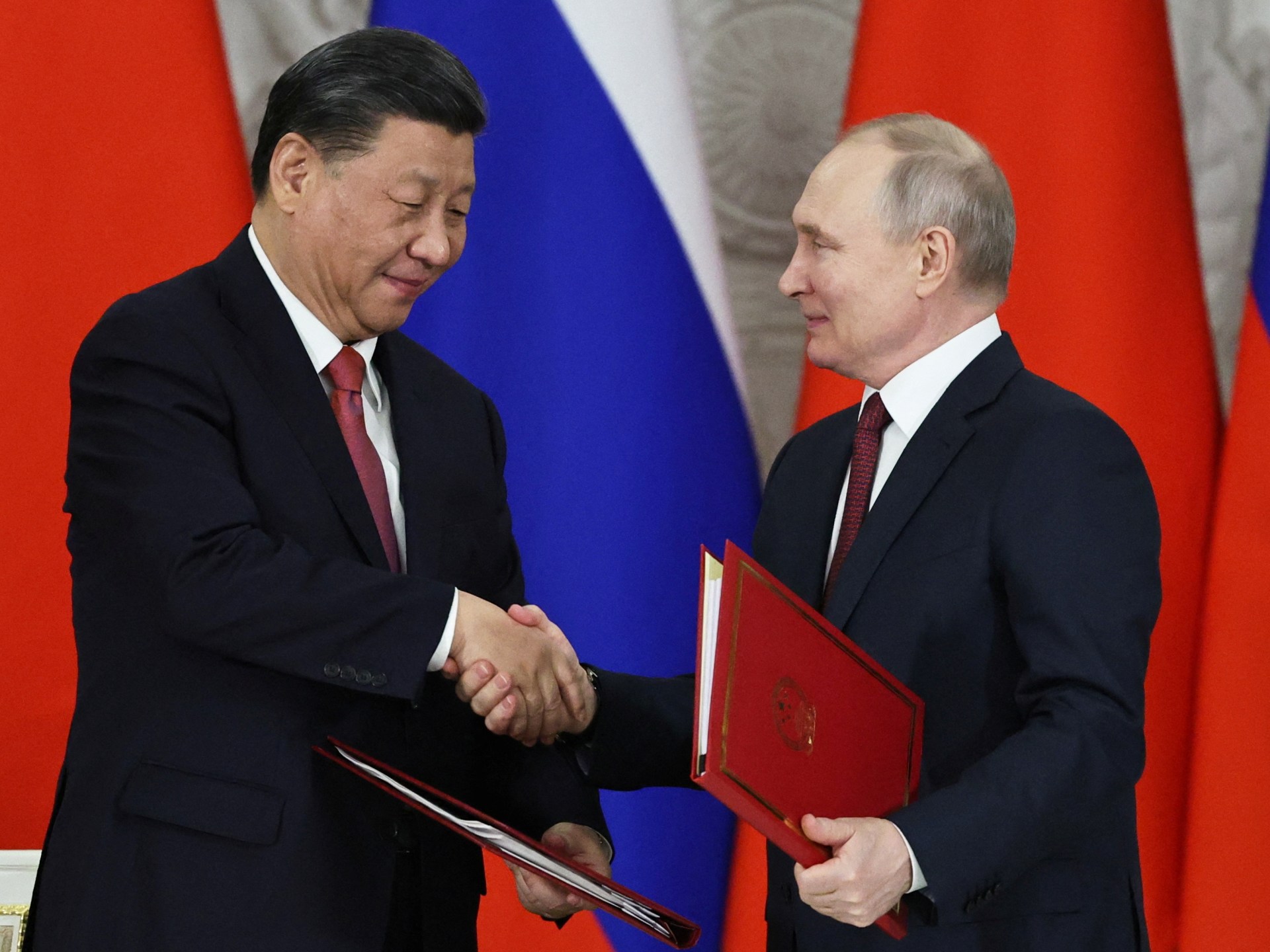International attention continues to be paid to Chinese President Xi Jinping's visit to Moscow this week, which the West saw as an explicit support for Russian President Vladimir Putin, who is facing an arrest warrant issued by the International Criminal Court.
It was Xi's first state visit after his third re-election to China's presidency, and was seen as symbolic, which will strengthen ties between the two leaders, as the West saw it as putting an end to Beijing's supposed neutrality in the war in Ukraine.
Western analysts say the visit was a lever for President Putin, "who is facing increasing international isolation".
A gift for Putin
Liana Fix, an expert at the Council on Foreign Relations, said Xi's visit encouraged Putin, especially since it came after the International Criminal Court issued an arrest warrant for him.
For Moscow, the visit "reflects tacit support, even if not proactive support from China" to continue fighting in Ukraine, Fix said.
Alexander Paunoff, an expert at the Carnegie Endowment, said the visit was seen by the non-Western world as "balancing" with the ICC decision, as if "the Chinese president broke the curse on Putin."
Signaling that the Chinese president wants to appreciate Putin, he has extended an invitation to visit Beijing.
For his part, Sam Green, director of the Center for European Policy Analysis in Washington, wrote on Twitter, "A gift given to Putin specifically, permission from Beijing to continue fighting," noting that he does not rule out a "surprise" if the Chinese president meets his Ukrainian counterpart Volodymyr Zelensky, but so far, the meeting between them is still uncertain.
China has never imposed Western sanctions on Moscow and has not hesitated to increase its fuel imports from Russia and increase its economic interests in the neighboring country.
Its recent presentation of a peace plan in Ukraine has raised many doubts among Westerners.
Rivalry with Washington
Antoine Bondaz, a China foreign policy expert at the Foundation for Strategic Research, said: "What is at stake today for China in the war in Ukraine is not the future of Ukraine, it is not interested in that, but the Sino-American rivalry and the desire to discredit Western countries."
For now, apart from the political signal from Beijing, which shares Moscow's stance toward the United States, the Sino-Russian partnership works more in China's favor than Russia, experts say.
But John Alterman, an expert at the Center for Strategic and International Studies, said: "While Xi and Putin have many common interests, it seems increasingly clear that it is not an equal partnership."
Putin needs something more than the Chinese president does, he said, referring to Russia's growing dependence on exporting hydrocarbons to China, a dependence that has worsened with the start of the war in Ukraine and is expected to increase when the Siberian Force 2 gas pipeline project comes into effect.
Tatiana Jean, director of the Centre for Russia and CIS Studies at the French Institute of International Relations, said: "Finally, Putin is coming out of this visit more strongly in the short term but more dependent on China in the long term."
In the current context, Beijing is "Russia's most valuable political and economic support," she said, adding, "As long as it has China's supposedly disguised support with a supposedly neutral stance, it will be able to continue the war."
Military support
However, Moscow has yet to receive military support, and US Secretary of State Antony Blinken has already told the Senate that China has not "crossed the line" and has not delivered lethal weapons to Russia.
For several weeks, the State Department has exerted intense diplomatic pressure on China to block the delivery of such weapons.
Antoine Bondaz, a China foreign policy expert at the Strategic Research Foundation, said that "China will widely provide weapons systems to Russia" at a time when it intends to be a stabilizing factor "with non-Western countries," especially as it may be subject to sanctions.
Some experts, such as independent expert Konstantin Kalachev, argue that "what is important is that this summit eliminated the risk of escalating the dispute between Moscow and Kiev to the stage of a nuclear dispute, because Putin will not risk disappointing his main partner Xi, who guarantees his steadfastness."

